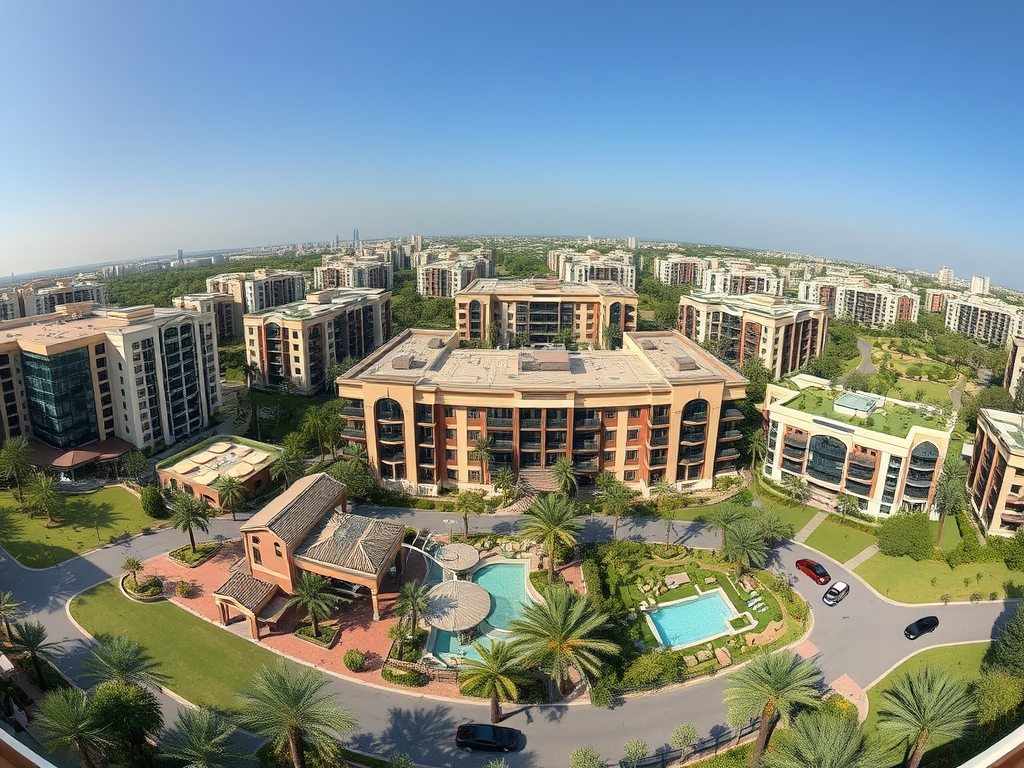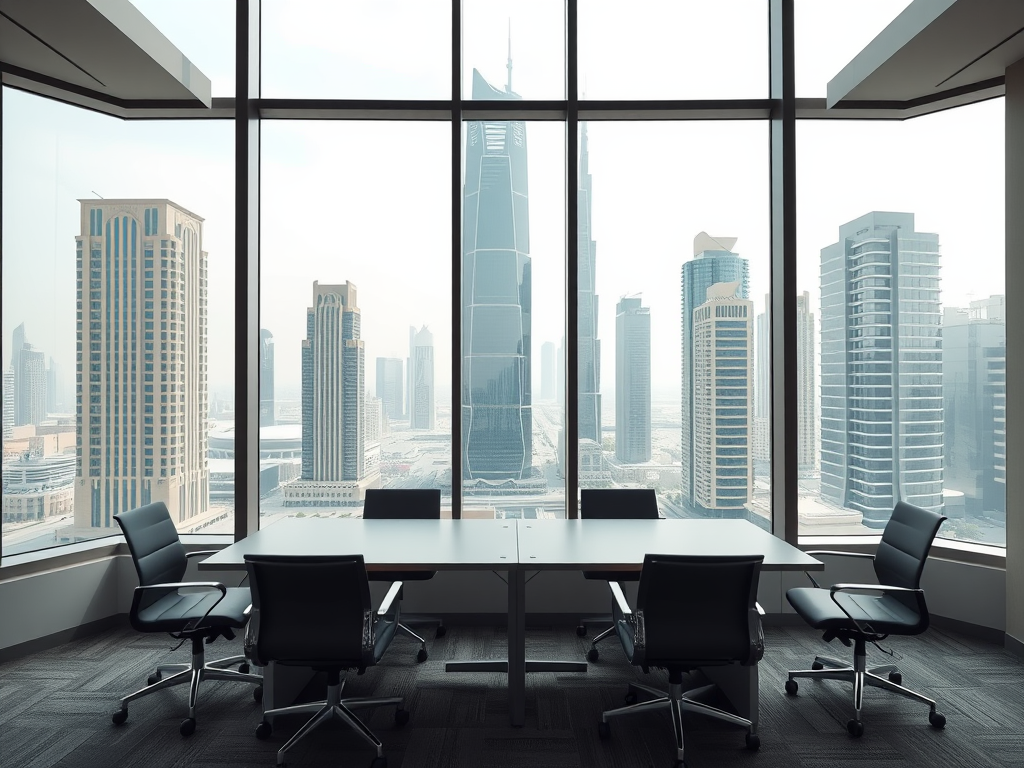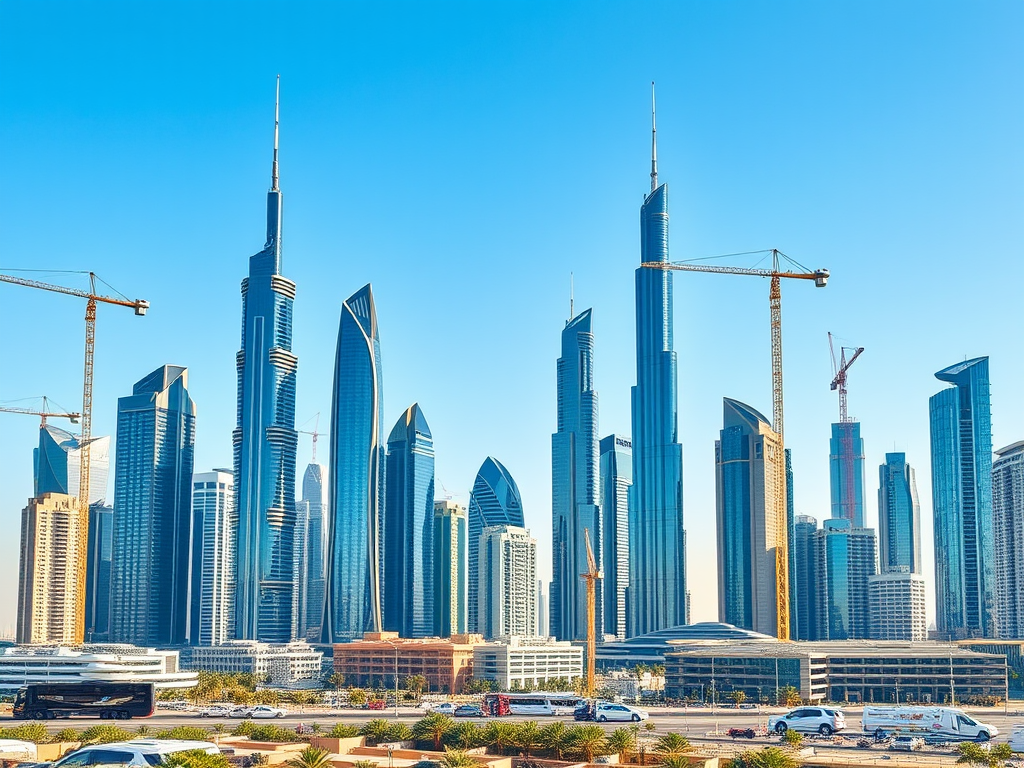International trade significantly influences Dubai’s property market, propelling it to become one of the world’s most vibrant real estate sectors. As a global business hub, Dubai attracts foreign investments, offers enticing incentives, and features a strategic location that connects East and West. This article explores the intricate relationship between international trade and Dubai’s real estate dynamics, examining its effects on property prices, demand, and the growth of investment opportunities.
1. The Role of International Trade in Shaping Dubai’s Economy

International trade is at the forefront of Dubai’s economy, driving the demand for commercial and residential real estate. The emirate’s strategic location makes it a significant logistics and trading center for various industries, including finance, tourism, and technology. As international firms establish their operations in Dubai, the demand for office spaces, warehouses, and residential properties has surged. Factors such as tax incentives, free trade zones, and a business-friendly environment have further attracted foreign businesses, creating a ripple effect in the real estate market.
Moreover, the diversification of the economy has drawn considerable attention from global investors, who view Dubai as a safe haven for their investments. The city’s ability to attract talent and businesses contributes to a stable demand for properties. International trade not only fuels economic growth but also enhances the overall attractiveness of Dubai as a prime investment destination.
2. Impact on Property Prices

The influx of global trade and investment has led to a noticeable increase in property prices across various segments in Dubai. The demand from expatriates and foreign investors has outstripped supply in some areas, enabling property developers to raise prices. Key effects on property prices include:
- Increased demand: As more businesses enter the market and more expatriates move to Dubai, the demand for residential and commercial spaces has intensified.
- Speculative investment: The prospect of high returns on real estate has led to speculative buying, further driving up prices.
- Quality developments: High demand encourages developers to create luxurious and high-quality properties, appealing to affluent buyers.
Consequently, property prices remain attractive to investors, attracting even more international interests. However, this price volatility can also lead to market corrections, emphasizing the need for prudent investments.
The role of international trade has spurred the popularity of mixed-use developments in Dubai. These types of properties combine residential, commercial, and retail spaces into one environment, catering to the needs of modern urban living and working. The benefits of this trend include:
- Convenience: Residents appreciate having shops, offices, and recreational areas within close proximity.
- Community living: Mixed-use developments foster a vibrant community, enhancing the overall quality of life.
- Investment appeal: Investors find these properties attractive due to their multi-faceted nature, which can yield diverse income streams.
With the rising demand for integrated living solutions in urban areas, mixed-use developments stand poised to thrive, reflecting the ever-changing needs of residents and businesses alike.
4. Foreign Direct Investment (FDI) in Dubai’s Property Sector
Foreign Direct Investment plays an essential role in sustaining the growth of Dubai’s property market. As international companies establish a presence in the region, they often invest in real estate for office spaces and housing for employees. The factors driving FDI interest include:
- Regulatory framework: Dubai’s government has instituted various reforms to facilitate easier foreign ownership and investment.
- Stable market conditions: The emirate offers a resilient real estate market with consistent growth potential.
- Infrastructural development: Ongoing investments in infrastructure further enhance the appeal of Dubai’s property market.
These elements not only fuel immediate construction and investment activities but also create long-term growth prospects, establishing Dubai as a desirable location for global investors.
5. Future Trends in Dubai’s Property Market
As international trade continues to reshape Dubai’s economy, several trends are likely to emerge in the property market. Some anticipated developments include:
- Increased sustainability: With a global push towards sustainability, developers in Dubai are expected to focus on eco-friendly projects.
- Smart cities: The integration of technology into urban planning will lead to smarter, more efficient living spaces.
- Continued diversification: With evolving economic conditions, Dubai is likely to attract investments across a broader range of sectors.
These trends indicate that Dubai’s property market will not only adapt to changes in international trade but will also thrive as a global real estate powerhouse.
Conclusion
The impact of international trade on Dubai’s property market is profound and multi-faceted. As the city continues to attract businesses and investors from around the world, real estate in Dubai remains a hot commodity, with prices reflecting ongoing demand. Mixed-use developments and FDI play significant roles in this dynamic landscape, paving the way for innovative solutions. The future seems bright for Dubai’s property sector, with trends indicating a move towards sustainability and smart living, ensuring its position as a leading global real estate market.
Frequently Asked Questions
1. How does international trade affect property prices in Dubai?
International trade drives demand for properties in Dubai as more businesses and expatriates enter the market, leading to increased property prices.
2. What types of properties are in demand due to international trade?
Both commercial and residential properties see heightened demand, particularly in mixed-use developments that offer integrated living and working solutions.
3. What is the role of foreign direct investment in Dubai’s property market?
Foreign direct investment helps to sustain market growth by providing capital for new projects and supporting the demand for commercial and residential properties.
4. What future trends should we expect in Dubai’s property market?
Future trends include a focus on sustainability, the integration of smart technologies, and continued diversification of investments across various sectors.
5. Why is Dubai considered a desirable location for property investment?
Dubai is attractive for property investment due to its strategic location, robust economic growth, business-friendly environment, and potential for high investment returns.
